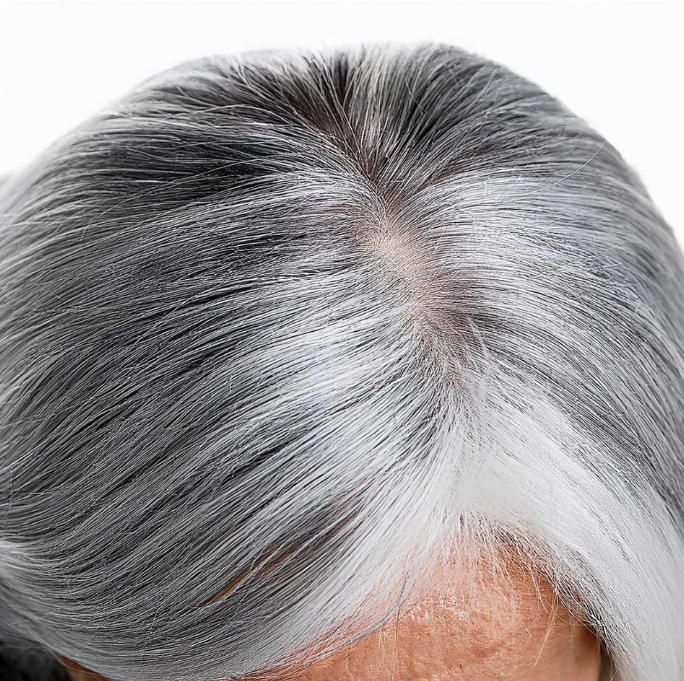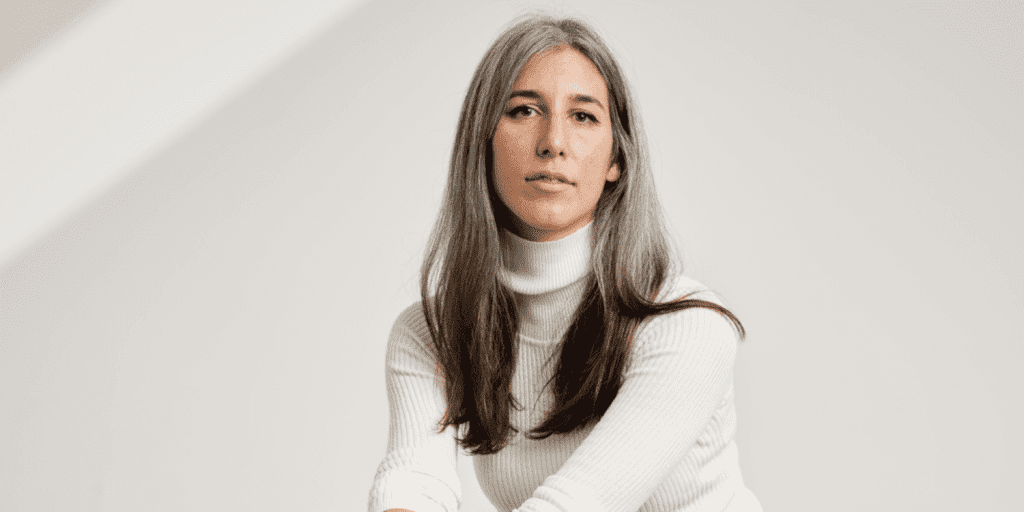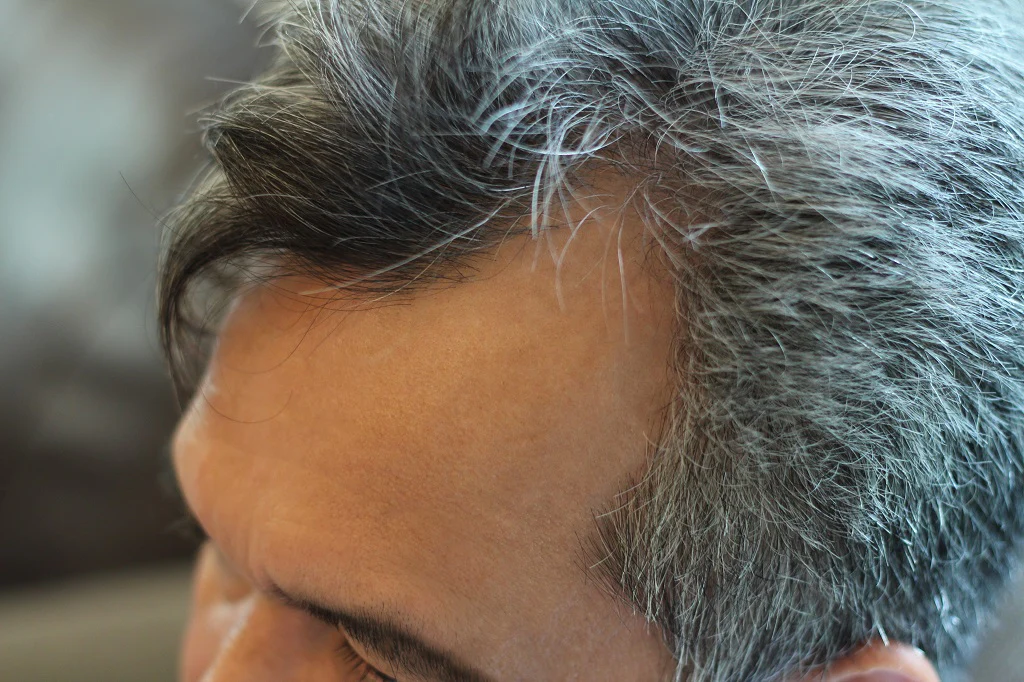Gray hair is often considered a natural sign of aging, but for many, it starts appearing at a much younger age. Premature graying can be puzzling and even distressing for those affected, leading them to wonder why it happens so early. Understanding the factors behind early graying involves delving into science, genetics, environmental influences, lifestyle habits, and possible treatments. This article explores why some people experience gray hair earlier than others and what can be done to slow the process.
The Science Behind Hair Color

The color of our hair is determined by a pigment called melanin, which is produced by cells known as melanocytes found in hair follicles. There are two types of melanin: eumelanin, responsible for black and brown hair, and pheomelanin, which gives hair its red and yellow hues. As we age, the activity of melanocytes decreases, leading to less melanin production, which causes hair to turn gray or white.
However, not everyone follows the same timeline. Some start going gray in their 20s or 30s, while others might retain their natural hair color well into their 40s or 50s. This variation is due to a combination of genetic and environmental factors, among others.
Genetics: A Major Factor in Early Graying
Your genes play a significant role in determining when your hair will start to turn gray. If your parents or grandparents experienced early graying, you’re more likely to follow suit. Certain genetic variants, such as the IRF4 gene, have been linked to early graying as they regulate melanin production.
While your genetic predisposition sets the foundation for when you may begin to gray, it’s not the only factor. Other influences like stress, diet, and lifestyle choices can accelerate or delay the process.
Environmental Factors and Their Impact
External factors also contribute to premature graying. Ultraviolet (UV) radiation from sun exposure is known to damage hair follicles and accelerate the breakdown of melanocytes, reducing melanin production. Pollution can also cause oxidative stress, which speeds up the graying process. Additionally, frequent use of chemical treatments, such as hair dyes and bleaches, can weaken hair follicles and lead to early graying by damaging the melanocytes responsible for hair pigmentation.
Lifestyle Choices: How Daily Habits Affect Graying
The way you live your life can significantly affect how soon you go gray. One of the leading contributors is smoking, which releases harmful toxins into the body. These toxins increase oxidative stress and damage melanocytes, leading to premature graying. Smokers are more likely to go gray earlier compared to non-smokers.
Other lifestyle factors, such as a poor diet, lack of sleep, and a sedentary lifestyle, can also accelerate the graying process. Poor nutrition deprives the scalp of essential vitamins and minerals that are crucial for maintaining hair health and pigmentation.
Health Conditions and Nutritional Deficiencies

Certain health conditions and nutritional deficiencies can also lead to early graying. Autoimmune diseases like vitiligo and alopecia areata attack melanocytes, reducing melanin production. Similarly, a Vitamin B12 deficiency is known to cause early graying, as it weakens hair follicles and hampers the production of melanin.
Other deficiencies, such as those in folic acid, copper, and zinc, can also contribute to early graying. A balanced diet rich in these nutrients is crucial for supporting hair health and maintaining its natural color.
Stress: The Link Between Anxiety and Graying
Chronic stress is often blamed for premature graying, and there’s some truth to this claim. When you’re stressed, your body releases cortisol and other stress hormones, which can damage melanocytes and interfere with their ability to produce melanin. Stress can also trigger oxidative stress, which accelerates aging, including the graying of hair. While stress alone may not cause gray hair, it certainly plays a role in speeding up the process if you’re genetically predisposed.
Preventive Measures and Treatments for Early Graying

While there’s no surefire way to completely prevent early graying if it’s in your genes, there are steps you can take to delay its onset. These include stress management techniques, dietary changes, and proper hair care practices.
Dietary Changes to Delay Graying
One of the best ways to maintain hair health and delay the onset of gray hair is by making dietary improvements. A diet rich in antioxidants, vitamins, and minerals supports melanocyte activity. Foods rich in Vitamin B12, folic acid, iron, copper, and zinc are especially important for preserving hair color.
Some foods to include in your diet are:
- Leafy greens like spinach and kale
- Eggs, which are rich in B vitamins
- Nuts and seeds, providi
- Fish, wh
- Berries, for their high an
Hair Care Products and Best Practices
To avoid aggravating premature graying, it’s essential to choose gentle hair care products that don’t contain harsh chemicals. Shampoos and conditioners with natural ingredients can nurture your hair and promote scalp health.
Also, avoid frequent use of heat styling tools like straighteners and curlers, as excessive heat can weaken hair and contribute to damage. Regularly massaging your scalp can promote blood circulation to hair follicles, helping to keep them healthy and vibrant.
Medical Treatments for Premature Graying

For those looking for medical solutions, several treatments can help manage or even reverse premature graying. Topical treatments containing melanin-promoting compounds, such as catalase, have shown some promise in maintaining hair pigmentation.
Nutritional supplements that address deficiencies in Vitamin B12, folic acid, and other essential nutrients may also be recommended by healthcare providers. Additionally, if you’re seeking a cosmetic solution, hair dyes offer a quick fix to cover gray hairs and restore your natural look.
Conclusion: Embrace the Change or Delay the Gray
While some factors that cause early graying—like genetics—are beyond your control, understanding the contributing factors can empower you to take proactive steps. Whether you focus on dietary improvements, stress management, or protective hair care practices, these actions can help delay the onset of gray hair.
Ultimately, gray hair is a natural part of aging, and while some may choose to cover it up, others may embrace it as a sign of wisdom and experience. Whichever path you choose, taking care of your hair and overall health will ensure you’re aging with grace and confidence.


